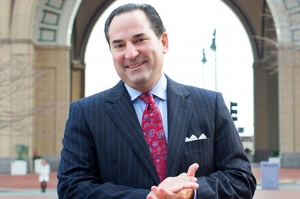Liquidation 101: Sorting Fact from Fiction

When asked what I do for a living, I usually explain that I started as a bankruptcy and corporate attorney and now work as an asset-disposition executive for a global firm called Tiger Capital Group. If the inquiry comes from a financial-sector professional, I’ll get a quick nod of understanding. Often, though, I’m met with a blank stare. “Part of what I do,” I’ll continue, “is set strategy for major liquidation or repositioning sales for national retailers.” I’ll talk about how Tiger is one of the firms that closes stores for chains like Bon-Ton, Gymboree, Payless ShoeSource, Sears Canada or Toys “R”Us and describe how we also liquidate industrial goods such as machinery and equipment.
That usually clarifies things—but never entirely. The truth is, when it comes to what Tiger and other disposition firms are all about, the gulf between perception and reality can be wide.
For starters, the term “liquidation firm” is inadequate. The top operators in this space—you can count them on one hand—do much more than run sales events. They conduct comprehensive appraisals on behalf of asset-based lenders (“ABL”) so the ABLs can pinpoint the borrowing base. The knowledge gained from their disposition work allows liquidators to know the true, underlying value of assets across multiple sectors—from summer dresses in a specialty store, to fracking equipment on a dusty plain in Texas. In the retail world, these data-driven appraisals also serve as a guarantee to the bank. Since liquidators are generally willing to purchase the assets at the appraised value (provided the inventory is substantially the same as it was when appraised), the lender is much more amenable to extending the borrowing base. The appraiser/liquidator can also provide bridge financing and other capital infusions.
At Tiger, much of our work is with healthy retailers seeking to ramp up their competitiveness. Savvy retailers see the necessity of shedding underperforming locations and the wisdom of selling valuable leases (or owned property) to reinvest in ecommerce, store renovations and better performing locations. The challenge is to execute a disposition event that leverages a company’s brand goodwill while preserving the integrity and value of that brand.
Common Questions about Liquidation
Why don’t retailers just close their own stores without our help? Asset disposition is really both an art and a science. Liquidators focus on creating ‘events’ that draw as much value out of the assets as possible. From experience, we know the optimal discounting, expense structure and timing to get the highest net recovery. At the same time, retailers can stay focused on their ongoing, profitable operations as opposed to the assets weighing down their bottom line. Disposition firms must be able to spur robust traffic for weeks or months, with stores staffed to holiday-season levels. The firm must also preserve the look and feel of the store even as it rolls out marketing campaigns—banners, sign-walkers, YouTube videos, customer e-blasts, newspaper and digital ads, and local and national press outreach—that convey the uniqueness and urgency of the event.
Discounts must be highly targeted, often down to the level of individual SKUs, and adjusted frequently with warp speed, all based on shifting market demand. To guarantee a steady stream of traffic, the firm must also maximize the sale of lower-demand goods while keeping enough high-demand merchandise in the store at lower discounts. A store’s regular shoppers might dominate at the beginning of the event; toward the end when discounts are at their highest, another more bargain-hungry shopper will enter the mix. Even the mannequins, office furniture, racking and all other store fixtures are sold in an orderly process at the same time the inventory is being liquidated.
As a result, another common question I receive is, “What do you do with what’s left over?” The answer is easy: At the close of the sale, nothing is left; the store is empty, broom-clean and ready to turn back to the landlord.
A Results-Driven Process
Few outsiders adequately appreciate the results-based nature of liquidation sales. While there is no standard template for a client engagement, the common thread is that we like to win only when our clients win. In the instance of a partnership with a healthy retailer, disposition firms often agree to a tiered fee structure: The more successful the sale, the higher their fee. This creates a strong incentive to maximize value. In working with distressed retailers, meanwhile, a firm like Tiger might agree to take on all of the economic risk by guaranteeing the sale results. How can we do that? Because of our past liquidation experience, we have confidence in our knowledge of the true value of the assets and our ability to sell them in a fashion which maximizes the overall net recovery.
Along the way, disposition firms provide other services as well. In a recent sale, Tiger worked with the client to extend the sale term in order to allow the inclusion of hundreds of millions of dollars in outstanding inventory to which the retailer had already committed. We also worked with a large department store chain to leverage their high-profile store-closing event at its flagship. From around the country, lower-demand goods poured into the store. Hundreds of palettes of goods quickly sold to the bare walls.
Good disposition firms take great pride in what they do. They know the importance of protecting brand integrity and treating employees, customers and all other stakeholders with respect, collaborating as partners and problem-solvers. Disposition firms empower distressed operators to make the most of tough situations and help healthy businesses do even better with the assets they control.
####
Bradley W. Snyder, Executive Managing Director of Tiger Capital Group, is a recognized authority and leading corporate advisor on global business strategies; BSnyder@TigerGroup.com



